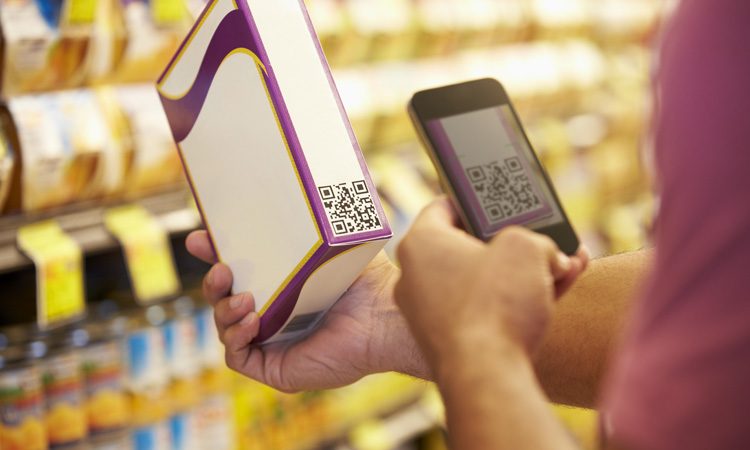Reducing food allergen incidents with technology
- Like
- Digg
- Del
- Tumblr
- VKontakte
- Buffer
- Love This
- Odnoklassniki
- Meneame
- Blogger
- Amazon
- Yahoo Mail
- Gmail
- AOL
- Newsvine
- HackerNews
- Evernote
- MySpace
- Mail.ru
- Viadeo
- Line
- Comments
- Yummly
- SMS
- Viber
- Telegram
- Subscribe
- Skype
- Facebook Messenger
- Kakao
- LiveJournal
- Yammer
- Edgar
- Fintel
- Mix
- Instapaper
- Copy Link
Posted: 30 October 2019 | Sam Mehmet (New Food) | No comments yet
New Food’s Sam Mehmet spoke to Steve Maul, Chief Revenue Officer at LocatorX, about how technology solutions could help combat the growing challenges surrounding food allergens.


Allergens have become a major part of the food industry, with health-related incidents continuing to rise, and recent tragedies, such as Natasha Ednan-Laperouse’s death, leading to a shift in legislation. Countries across the world are starting to look at food allergens, food safety and food fraud like never before.
Atlanta-based start-up, LocatorX, is one such company looking to address the challenges of allergens via an easy-to-follow allergen tracking system. Steve Maul, Chief Revenue Officer at LocatorX told New Food that the company’s solution is needed to address both the “nefarious nature” of fraudsters and the unprecedented number of food-based allergies.
Current regulation is good at protecting consumers who know they have food allergies, Maul explained. The challenge lies with food allergies that are not particularly well known; consumers with these allergies may not get the attention they need, and their health and safety may, therefore, be put at risk.
Regulation-based approaches can drive the costs up for all parties involved, creating tension in commercial enterprises, particularly for speciality products that draw a specific market. “In my opinion, regulatory approaches put an unfair burden on the retailer – the food provider or the restaurant – if they have to label everything on the product, whether the consumers care about it or not,” Maul argued.
“LocatorX wants to ensure that, if someone has a flaxseed allergy, for example, they know if flaxseeds were used in any way shape or form in the preparation of the food product. Natasha’s Law may not require that to be disclosed in full,” he explained.
“LocatorX’s philosophy is slightly different when considering safety and consumer confidence. We believe the best thing to do is to inform the buyer of all ingredients in a clear and easy-to-find manner so that the individual can take a greater role in protecting their own safety.
“Labelling everything on a small paper label is almost impossible as there is simply not enough room,” Maul admitted, “so LocatorX wants to encapsulate the knowledge into an encrypted, secure platform. Our customers – the manufacturers – will be able to label their product with a certified QR code, so that a simple scan from a phone will enable the consumer to know everything that is in the product, or has been used in the production of the product.”
The future of ingredients labelling?
LocatorX hopes to develop future partnerships whereby a mobile application would be developed using LocatorX data, and the consumer could then programme it to say ‘I am allergic to flaxseed’, so that once a QR code has been scanned, it will automatically flash green or red. This would indicate whether or not the product is safe for consumption for that specific consumer, eliminating the need to search through a long list of ingredients.
The system could also be implemented in restaurants and on food menus, which is what Owen’s Law is pushing towards. Maul explained that there are a different set of activities related to this however, because recipes would have to be consistently updated on a server to ensure an up-to-date ingredients and allergen list.
Maul outlined how driving trust into the consumer markets is key to the development of successful allergen tracking systems like this, and confidence must come from all parties. When considering food, this relates to allergens, but could also link to non-GMO certification or organic certification, for example. “Manufacturers can include all of that extra information that they could not fit on the label,” Maul said.
The tracking system would also allow ingredient information to be included right from the source. “We are currently talking to some smaller farm producers who are going to start labelling things like lettuce and other vegetables right as they leave the farm. This will enable us to track their journey all the way to market, giving another path of confidence for the consumer.”
Food recalls and traceability
“The thing that I think is most important as we go forward with merging technology solutions to consumer safety – when regarding allergens – is that we do not know what the next allergen is going to be. What we need is an approach that is not reflexive or reactive like regulation tends to be, but a solution that allows the market to react quickly to allergens as they are learned,” Maul noted.
LocatorX hopes to combat recalls and food fraud through the same QR technology. “Unfortunately, bad things happen, and food has to be recalled. Companies often have to recall everything – and the cost is enormous. There is no replication when using unique QR codes, so we can tell where those particular products are. We can then send a notification through the app indicating that those goods have been recalled. It makes a much more communicative and bi-directional relationship with the consumer and the food producer,” Maul said.
He continued: “We are partnering with a third-party firm so that when a manufacturer creates a product, whether it be food, medicine or shoes, they can fit a LocatorX tag that has a digital birth certificate. This third-party organisation can then digitally sign it so that whenever that product gets scanned at any point in the future, it will be authenticated as being the original item. For products like medicine and food, that is huge.”
Biography


Steve Maul
Steve Maul is the Chief Revenue Officer at LocatorX. Prior to joining LocatorX, Steve founded The Semantics Group in 2011, a sales effectiveness firm focused on helping its clients get and keep customers through a variety of assessment tools, strategic alignment, learning and coaching programmes that Steve authored and delivered to clients.
Related topics
Allergens, Clean Label, Food Safety, Health & Nutrition, Outbreaks & product recalls, Product Development, Regulation & Legislation, The consumer, Traceability









